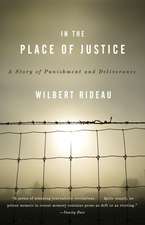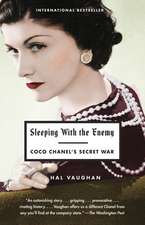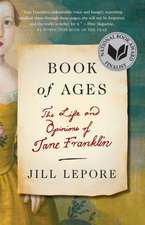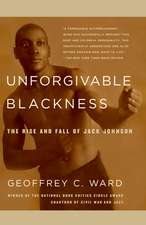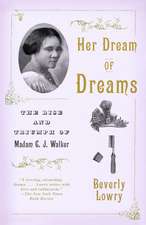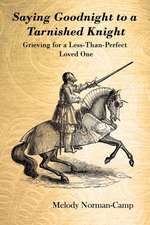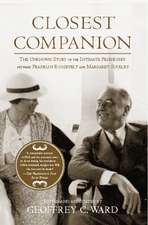A Disposition to Be Rich: How a Small-Town Pastor's Son Ruined an American President, Brought on a Wall Street Crash, and Made Himself the Best-
Autor Geoffrey C. Ward Robertson Deanen Limba Engleză CD-Audio – 30 apr 2012
Ferdinand Ward was the Bernie Madoff of his generation-a supposed genius at making big money fast on Wall Street, who turned out to have been running a giant pyramid scheme that ultimately collapsed in one of the greatest financial scandals in American history. The son of a Protestant missionary and small-town pastor with secrets of his own to keep, Ward came to New York at twenty-one and in less than a decade, armed only with charm, energy, and a total lack of conscience, made himself the business partner of a former president of the United States and was widely hailed as the "Young Napoleon of Finance." In truth, he turned out to be a complete fraud, his entire life marked by dishonesty, cowardice, and contempt for anything but his own interests.Drawing from thousands of never-before-examined family documents, Geoffrey C. Ward traces his great-grandfather's rapid rise to riches and fame, and his even more dizzying fall from grace. There are mistresses and mansions along the way; fast horses, crooked bankers, and corrupt New York officials; courtroom confrontations and six years in Sing Sing; and Ferdinand's desperate scheme to kidnap his own son to get his hands on the estate his late wife had left the boy. A Disposition to Be Rich is a great story about a classic American con artist, told with boundless charm and dry wit by one of our finest historians.
Preț: 147.40 lei
Nou
Puncte Express: 221
Preț estimativ în valută:
28.21€ • 30.16$ • 23.52£
28.21€ • 30.16$ • 23.52£
Indisponibil temporar
Doresc să fiu notificat când acest titlu va fi disponibil:
Se trimite...
Preluare comenzi: 021 569.72.76
Specificații
ISBN-13: 9781452655390
ISBN-10: 1452655391
Dimensiuni: 134 x 189 x 16 mm
Greutate: 0.11 kg
Ediția:Completă
Editura: TANTOR MEDIA INC
ISBN-10: 1452655391
Dimensiuni: 134 x 189 x 16 mm
Greutate: 0.11 kg
Ediția:Completă
Editura: TANTOR MEDIA INC
Recenzii
"[Ward] narrates a rollicking financial picaresque, but infuses it with psychological depth." ---Publishers Weekly Starred Review
Notă biografică
Geoffrey C. Ward is an author and screenwriter of various documentary presentations of American history. A former editor of American Heritage magazine, he wrote the television mini-series The Civil War with director Ken Burns and has collaborated with Burns on every documentary he has made since, including Jazz and Baseball. This work won him five Emmy Awards. He is the author or coauthor of numerous books, including five companion books to the documentaries he has written. A First-Class Temperament, his biography of Franklin Delano Roosevelt, won the National Book Critics Circle Award and the Francis Parkman Prize of the Society of American Historians. His biography Unforgivable Blackness: The Rise and Fall of Jack Johnson won the 2006 William Hill Sports Book of the Year. Robertson Dean has recorded hundreds of audiobooks in most every genre. He's been nominated for several Audie Awards, won nine Earphones Awards, and was named one of AudioFile magazine's Best Voices of 2010. He lives in Los Angeles, where he records books and acts in film, TV, and (especially) on stage.
Descriere
The compelling, unknown, behind-the-scenes story of the greatest swindler of the Gilded Age--Ferdinand Ward--whose villainy bankrupted Ulysses S. Grant and stunned the world of finance, told by his great-grandson, the award-winning historian Geoffrey C. Ward.
Extras
Excerpted from the Hardcover Edition
Chapter One
The Higher Calling
Shortly after dawn on March 20, 1837, at the end of a four-month voyage from Boston, the captain of the American merchant ship Saracen sighted the green Coromandel coast of South India and set his course northward along it, headed for the British port city of Madras.
The Saracen was carrying three distinctive products from New England. Two were in great demand: bales of the rugged cotton twill then called "jeans," and more than one hundred tons of ice, cut from Massachusetts ponds into big blue-green blocks, then carefully packed into the Saracen's hold, surrounded by layers of lumber, hay, sawdust, and tanbark to minimize melting over the course of the long voyage. For the British, suffering in the Indian heat, the regular arrival of American ice was a godsend. "The stoppage of the Bank of Bengal here could hardly exceed the excitement of a failure, during our hot weather, of the ice!" one Briton wrote. "And the arrival of our English mail is not more anxiously expected than that of an American Ice-ship, when supplies run low."
The third New England export aboard the Saracen-Puritanism-would find a less cordial welcome. The ship's sole passengers were six American missionaries and their wives as well as a physician and his wife dedicated to their care. They stood silently together on the quarter-deck, gazing at the distant shoreline. They had left friends and families and endured 118 days at sea in order to help bring their brand of Protestantism to the unconverted millions of the subcontinent, to create what one veteran missionary called "New England in India." Timothy Dwight, the president of Yale and a founder of the American Board of Commissioners for Foreign Missions, under whose auspices they had embarked, had set their ambitious agenda: it was their charge, he wrote, to hasten the time "when the Romish cathedral, the mosque, and the pagoda, shall not have one stone left upon another, which shall not be thrown down."
For the little group on deck, prospects of hastening that time did not look immediately reassuring. Every landmark they saw that day underscored the enormity of the task they faced: a beachfront cluster of carved Hindu structures at Mahabalipuram had withstood the pounding surf for more than a thousand years; the gleaming white Cathedral of Saint Thomas, built by the Portuguese and said to mark the original tomb of the apostle, symbolized for the Americans not Christianity but "popery," more sinister even than the native "heathen" faith they had been sent to supplant; and when they at last came within sight of Fort St. George, the big coastal bastion from which Britons governed the vast Madras presidency, the carved gopurams of more Hindu temples and the scattered domes of Muslim mosques appeared above "Blacktown," the jumble of mud huts and whitewashed houses that had grown up in the shadow of its walls. The missionaries' worst fears had been confirmed: the city was clearly the home of "errorists of every name and grade."
Walls of foaming surf made it impossible for large vessels to get anywhere near the shore at Madras. So the captain of the Saracen lowered her sails two miles offshore and waited for orders from the harbormaster telling him where to drop anchor among the scores of merchant vessels and hundreds of smaller fishing boats already bobbing in the Madras Roads.
The Americans watched as two crudely fashioned catamarans-teak logs lashed together, each paddled by three kneeling men-struggled out toward them through the waves. Despite the still-bright late-afternoon sun, the missionaries were clad in black; their wives wore the long-sleeved dresses with full skirts and many petticoats thought suitable for the wives of clergymen back home. When the first catamaran reached the Saracen and its occupants clambered up the side to deliver anchoring instructions to the captain, the sight of them, dark skins shiny with sweat, naked but for loincloths and standing only a few feet away, drove several of the women and at least two of the men to their cabins to weep with shock and pray for strength.
"These are the Hindus, these the people among whom we came to dwell!" the Reverend Ferdinand De Wilton Ward remembered saying to his wife, Jane Shaw Ward, that evening as they settled into their berths to try to get at least a little sleep before going ashore the next morning. Ward had celebrated his twenty-fourth birthday at sea; his wife was seven month solder. Everything they had seen that day suggested that the gulf between New England and the ancient land to which they and their companions expected to devote the rest of their lives was wider than they'd imagined, the challenge of conversion greater than they'd dreamed. If the little band of missionaries was to have any impact on India at all, they would have to work together as one, Ward would write, bound up in "a united labor of love," with each member careful always to display consistent "patience and forbearance."
But neither he nor his wife was prepared to remain united with anyone else for long. Neither was patient or forbearing, either. In the end it was not the immovability of India but the Wards' own intransigence and stubborn self-regard that would first drive the couple home in disgrace and then create the claustrophobic, embittered world that helped warp the personality of their younger son.
Rev. Ferdinand De Wilton Ward, the swindler's father and namesake, had been brought up to believe that his family, the Wards of Rochester, New York, were better than other people: more upright, more principled, more godly, and-perhaps as a reward for all that conspicuous virtue-bound to be more successful. Their prosperity and prominence, they believed, were inextricably linked with what Rev. Ward would call "their ancestral, heroic, puritan piety of which they were never, for an hour, ashamed."
They had already prospered in Massachusetts and Connecticut for six generations by 1807, when Ferdinand's grandfather, Deacon Levi Ward, his Yale-educated father, Dr. Levi Ward Jr., their families, and several neighbors all left Haddam, Connecticut, together and joined the stream of New Englanders then headed for the "Genesee Woods," the dark unbroken forest that blanketed most of western New York. From the first, they considered themselves a cut above their fellow pioneers. Deacon Ward saw to it that his wife rode through the forest in a horse-drawn chaise with leather springs, the first such conveyance ever seen in the New York wilderness (or so his descendants later claimed). Once they reached and cleared the site that was first named "Wardville" and then became part of the village of Bergen, the deacon's eldest son, Dr. Levi Ward, built his family a frame house with cedar shingles rather than a log cabin, even though his new neighbors found it "somewhat aristocratic."
Ferdinand De Wilton Ward was born in that house on July9, 1812, the youngest of five boys and the second-to-youngest child in a family of thirteen children (eleven of whom would live to adulthood). His earliest memories included the bright, beaded moccasins worn by the Indian hunters who emerged from the woods from time to time with game to barter, and the distant sound of howling wolves, heard as he lay shivering in bed.
His father was an unusually successful settler. By the time Ferdinand was born, Dr. Ward was running a provisions store, serving his fifth consecutive term as town supervisor, overseeing mail delivery throughout the region, and acting as land agent for the State of Connecticut, charged with selling off some fifty thousand acres of cleared forest for farmland-and pocketing a handsome commission for every sale.
But he was not satisfied. In early 1818, when Ferdinand was five and his father was forty-six, his parents moved their large brood twenty miles or so to the east, to what was then called Rochester Ville, on the Upper Falls of the Genesee River. Only seven hundred people lived there then, but the tumbling ninety-six-foot cataract at the village's heart was ideally suited for powering mills and workshops, and there was good reason to believe the tiny village would soon outdo all the surrounding settlements: the New York State legislature had decreed that the 363-mile Erie Canal, connecting Albany on the Hudson to Buffalo on Lake Erie, was to cross the Genesee at Rochester. Work was already under way. Once completed, the canal would link the American heartland for the first time to distant continents-and transform the thickly forested Genesee Valley into fields of ripening wheat for sale to the cities of the East.
Rochester was about to become the "Flour City"-the nation's first real boomtown-and Dr. Ward and all his offspring would profit handsomely from its startling growth. Ferdinand grew up in a world in which his father seemed to be everywhere at once, encouraging every new enterprise, urging his neighbors to ever-greater effort, summoning up a city from a forest. He helped lobby to make Rochester the seat of the brand-new Monroe County, opened stores, bought up big tracts of land, cornered the insurance business, helped establish the Rochester City Bank, the first New York financial institution ever chartered outside New York City, as well as the Rochester Savings Bank-and then served as president and director of each. Hews a ruling elder of the First Presbyterian Church, helped establish the Female Charitable Society, the County Poor House, the Western House of Refuge, the Rochester Athenaeum, the Rochester Society for the Promotion of Temperance. He was a life member of the American Colonization and American Tract Societies, too, and president of the Monroe County Bible Society, the very first in the country, whose goal it was to place a Bible in the hands of every citizen willing to accept one.
Chapter One
The Higher Calling
Shortly after dawn on March 20, 1837, at the end of a four-month voyage from Boston, the captain of the American merchant ship Saracen sighted the green Coromandel coast of South India and set his course northward along it, headed for the British port city of Madras.
The Saracen was carrying three distinctive products from New England. Two were in great demand: bales of the rugged cotton twill then called "jeans," and more than one hundred tons of ice, cut from Massachusetts ponds into big blue-green blocks, then carefully packed into the Saracen's hold, surrounded by layers of lumber, hay, sawdust, and tanbark to minimize melting over the course of the long voyage. For the British, suffering in the Indian heat, the regular arrival of American ice was a godsend. "The stoppage of the Bank of Bengal here could hardly exceed the excitement of a failure, during our hot weather, of the ice!" one Briton wrote. "And the arrival of our English mail is not more anxiously expected than that of an American Ice-ship, when supplies run low."
The third New England export aboard the Saracen-Puritanism-would find a less cordial welcome. The ship's sole passengers were six American missionaries and their wives as well as a physician and his wife dedicated to their care. They stood silently together on the quarter-deck, gazing at the distant shoreline. They had left friends and families and endured 118 days at sea in order to help bring their brand of Protestantism to the unconverted millions of the subcontinent, to create what one veteran missionary called "New England in India." Timothy Dwight, the president of Yale and a founder of the American Board of Commissioners for Foreign Missions, under whose auspices they had embarked, had set their ambitious agenda: it was their charge, he wrote, to hasten the time "when the Romish cathedral, the mosque, and the pagoda, shall not have one stone left upon another, which shall not be thrown down."
For the little group on deck, prospects of hastening that time did not look immediately reassuring. Every landmark they saw that day underscored the enormity of the task they faced: a beachfront cluster of carved Hindu structures at Mahabalipuram had withstood the pounding surf for more than a thousand years; the gleaming white Cathedral of Saint Thomas, built by the Portuguese and said to mark the original tomb of the apostle, symbolized for the Americans not Christianity but "popery," more sinister even than the native "heathen" faith they had been sent to supplant; and when they at last came within sight of Fort St. George, the big coastal bastion from which Britons governed the vast Madras presidency, the carved gopurams of more Hindu temples and the scattered domes of Muslim mosques appeared above "Blacktown," the jumble of mud huts and whitewashed houses that had grown up in the shadow of its walls. The missionaries' worst fears had been confirmed: the city was clearly the home of "errorists of every name and grade."
Walls of foaming surf made it impossible for large vessels to get anywhere near the shore at Madras. So the captain of the Saracen lowered her sails two miles offshore and waited for orders from the harbormaster telling him where to drop anchor among the scores of merchant vessels and hundreds of smaller fishing boats already bobbing in the Madras Roads.
The Americans watched as two crudely fashioned catamarans-teak logs lashed together, each paddled by three kneeling men-struggled out toward them through the waves. Despite the still-bright late-afternoon sun, the missionaries were clad in black; their wives wore the long-sleeved dresses with full skirts and many petticoats thought suitable for the wives of clergymen back home. When the first catamaran reached the Saracen and its occupants clambered up the side to deliver anchoring instructions to the captain, the sight of them, dark skins shiny with sweat, naked but for loincloths and standing only a few feet away, drove several of the women and at least two of the men to their cabins to weep with shock and pray for strength.
"These are the Hindus, these the people among whom we came to dwell!" the Reverend Ferdinand De Wilton Ward remembered saying to his wife, Jane Shaw Ward, that evening as they settled into their berths to try to get at least a little sleep before going ashore the next morning. Ward had celebrated his twenty-fourth birthday at sea; his wife was seven month solder. Everything they had seen that day suggested that the gulf between New England and the ancient land to which they and their companions expected to devote the rest of their lives was wider than they'd imagined, the challenge of conversion greater than they'd dreamed. If the little band of missionaries was to have any impact on India at all, they would have to work together as one, Ward would write, bound up in "a united labor of love," with each member careful always to display consistent "patience and forbearance."
But neither he nor his wife was prepared to remain united with anyone else for long. Neither was patient or forbearing, either. In the end it was not the immovability of India but the Wards' own intransigence and stubborn self-regard that would first drive the couple home in disgrace and then create the claustrophobic, embittered world that helped warp the personality of their younger son.
Rev. Ferdinand De Wilton Ward, the swindler's father and namesake, had been brought up to believe that his family, the Wards of Rochester, New York, were better than other people: more upright, more principled, more godly, and-perhaps as a reward for all that conspicuous virtue-bound to be more successful. Their prosperity and prominence, they believed, were inextricably linked with what Rev. Ward would call "their ancestral, heroic, puritan piety of which they were never, for an hour, ashamed."
They had already prospered in Massachusetts and Connecticut for six generations by 1807, when Ferdinand's grandfather, Deacon Levi Ward, his Yale-educated father, Dr. Levi Ward Jr., their families, and several neighbors all left Haddam, Connecticut, together and joined the stream of New Englanders then headed for the "Genesee Woods," the dark unbroken forest that blanketed most of western New York. From the first, they considered themselves a cut above their fellow pioneers. Deacon Ward saw to it that his wife rode through the forest in a horse-drawn chaise with leather springs, the first such conveyance ever seen in the New York wilderness (or so his descendants later claimed). Once they reached and cleared the site that was first named "Wardville" and then became part of the village of Bergen, the deacon's eldest son, Dr. Levi Ward, built his family a frame house with cedar shingles rather than a log cabin, even though his new neighbors found it "somewhat aristocratic."
Ferdinand De Wilton Ward was born in that house on July9, 1812, the youngest of five boys and the second-to-youngest child in a family of thirteen children (eleven of whom would live to adulthood). His earliest memories included the bright, beaded moccasins worn by the Indian hunters who emerged from the woods from time to time with game to barter, and the distant sound of howling wolves, heard as he lay shivering in bed.
His father was an unusually successful settler. By the time Ferdinand was born, Dr. Ward was running a provisions store, serving his fifth consecutive term as town supervisor, overseeing mail delivery throughout the region, and acting as land agent for the State of Connecticut, charged with selling off some fifty thousand acres of cleared forest for farmland-and pocketing a handsome commission for every sale.
But he was not satisfied. In early 1818, when Ferdinand was five and his father was forty-six, his parents moved their large brood twenty miles or so to the east, to what was then called Rochester Ville, on the Upper Falls of the Genesee River. Only seven hundred people lived there then, but the tumbling ninety-six-foot cataract at the village's heart was ideally suited for powering mills and workshops, and there was good reason to believe the tiny village would soon outdo all the surrounding settlements: the New York State legislature had decreed that the 363-mile Erie Canal, connecting Albany on the Hudson to Buffalo on Lake Erie, was to cross the Genesee at Rochester. Work was already under way. Once completed, the canal would link the American heartland for the first time to distant continents-and transform the thickly forested Genesee Valley into fields of ripening wheat for sale to the cities of the East.
Rochester was about to become the "Flour City"-the nation's first real boomtown-and Dr. Ward and all his offspring would profit handsomely from its startling growth. Ferdinand grew up in a world in which his father seemed to be everywhere at once, encouraging every new enterprise, urging his neighbors to ever-greater effort, summoning up a city from a forest. He helped lobby to make Rochester the seat of the brand-new Monroe County, opened stores, bought up big tracts of land, cornered the insurance business, helped establish the Rochester City Bank, the first New York financial institution ever chartered outside New York City, as well as the Rochester Savings Bank-and then served as president and director of each. Hews a ruling elder of the First Presbyterian Church, helped establish the Female Charitable Society, the County Poor House, the Western House of Refuge, the Rochester Athenaeum, the Rochester Society for the Promotion of Temperance. He was a life member of the American Colonization and American Tract Societies, too, and president of the Monroe County Bible Society, the very first in the country, whose goal it was to place a Bible in the hands of every citizen willing to accept one.

